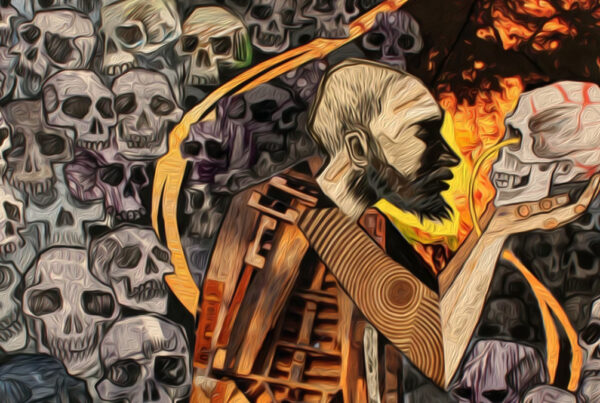Day 4: Chapter 4
There are many contrasts in the book of Esther. As we said, Esther and Vashti are very different. Haman and Mordecai are also different. Look at how Mordecai reacts to the news that the Jews will be killed. Haman had a cold, calculating and unemotional plan to annihilate a whole race; Mordecai, on the other hand, wailed loudly and bitterly, wearing sackcloth and tearing his clothes. The drinking and celebrating done by Xerxes and Haman at the end of chapter 3 is in great contrast to the mourning of Mordecai here. Also, Esther tells Mordecai and the maids to fast for three days, in contrast to the banquets that the king puts on.
Mordecai refused to bow down to Haman, and look what he hath wrought. The end of his race. Was Mordecai weeping for himself partly? Or was he only concerned for the plight of the Jews. After all, if he’d been willing to bow down to Haman, if only in name, none of this would have happened. Or did God orchestrate the whole thing as He wished?
We don’t know, but we can be assured, along with Mordecai, that God would save the Jews. He could use Esther if she was willing, or God could make the deliverance “arise from another place.” That’s like us today. We can participate in what God is doing to bring about his kingdom in our workplace, at home, in our neighborhoods, or… we can be silent and let God pick someone else.
Key Verse:
“For if you remain silent at this time, relief and deliverance for the Jews will arise from another place, but you and your father’s family will perish. And who knows but that you have come to royal position for such a time as this?” ~ Esther 4:14
Questions to ponder:
- When have you seen the “relief and deliverance” of God?
- Should Mordecai have just bowed down to Haman in the first place? When have you had to humble yourself when you hated the person you were “bowing” to?
- When have you seen a person of position be used by God “for such a time as this?”


